Crude Conversations
”Crude Conversations” features guests who represent a different aspect of Alaska. Follow along as host Cody Liska takes a contemporary look at what it means to be an Alaskan. Support and subscribe at www.patreon.com/crudemagazine and www.buymeacoffee.com/crudemagazine
Episodes
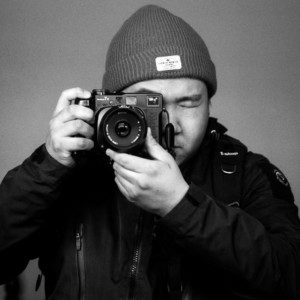
Tuesday May 31, 2022
Chatter Marks EP 039 Searching for community with Young Kim
Tuesday May 31, 2022
Tuesday May 31, 2022
Photographer Young Kim says that it’s weird to live in a place that’s so big and so busy that people aren’t checking up on each other. He prefers smaller communities where everyone knows each other. His longing to be part of something tight-knit might come from his early childhood, when he and his family lived in Sand Point, a town of about 600 located along the Aleutian Islands.
Young’s sense of community has, at times, been reinforced by growing up in the restaurant industry. Specifically, he remembers the staff dinners, when everyone would sit down together for a meal after their shift. Today, Young is the co-owner of Akela Space, a community gallery and photography studio in Anchorage. It’s a place that he and his co-owner, Jovell Rennie, hope to be a hub for community and for knowledge.
The photography that Young is working on right now is about his mom and how their relationship is changing. When we’re younger, our parents are the caregivers, but as we get older those roles can switch. So, it’s important for our expectations to be flexible because things don’t always play out the way we imagine.
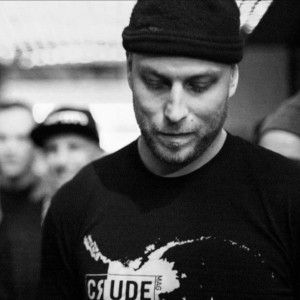
Friday May 20, 2022
EP 108 Overcoming the traps in my mind with Sydney Eubanks
Friday May 20, 2022
Friday May 20, 2022
In this episode, Cody talks with battle rapper Sydney Eubanks, better known as Phonetic. He’s been in the Alaska hip-hop scene now for over 20 years. He started making music in Sitka and then doing live shows in Juneau. He says that being from Sitka — a small town in Alaska — he understood that battle rapping was the fastest way to build his name and get respect. So, in 2002, he went to Seattle to compete in a big battle event called Brainstorm. He did well in the competition and it gave him the confidence he needed to come back to Alaska and start a battle scene there. He called these Alaska battle events Word 2 the Wize and they hosted local battle rappers and legendary battle rappers from outside of Alaska. Word 2 the Wize went on for nine years, cultivating and nurturing seasoned and up-and-coming battle rappers alike.
Phonetic hasn’t performed on-stage since 2016, the same year he decided to stop making music. He had moved to Seattle to pursue being a rapper and things were going good there, but he was also struggling with mental health issues and living away from his kids. So, he eventually moved back home, and for eight years he’s been trying to find a balance between the things he loves and the things he needs. Coaching high school basketball has been a big part of finding that balance. It was actually the inspiration for his new album, Mindful of the Menticide, which deals with uncertainty and mental illness. Where he’s at right now, mentally and physically, he says that he’s found a way to do all the things that he loves — he gets to coach and he gets to rap.
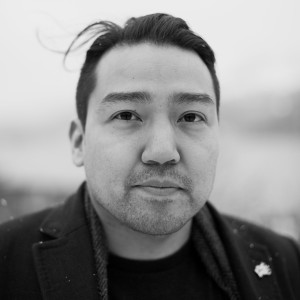
Monday May 16, 2022
Monday May 16, 2022
Rico Worl owns a business in Juneau that aims to distribute money spent on Alaska Native art back into Alaska Native communities. His business is called Trickster for the raven in Alaska Native culture that represents the Creator and is always playing tricks. Trickster began as a skateboard company, so there’s that association too. In fact, the idea for it started when Rico painted his clan crest onto his longboard and skated around Juneau.
Before the pandemic, Juneau saw about a million tourists a year. Many of which purchase what Rico calls knockoff Alaska Native art. A small percent of that money actually goes back to the communities that developed the art form. Rico recognized this and came up with a plan: He would design and sell art that blends modern and traditional styles and make sure the proceeds go back to the Alaska Native communities from which they came.
Chatter Marks is a podcast of the Anchorage Museum, and is available on Apple Podcasts, Spotify, Amazon Music and Google Podcasts. Just search "Chatter Marks."
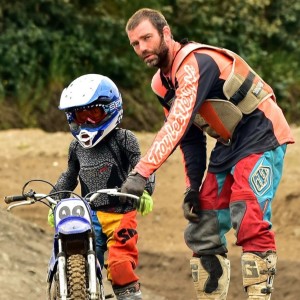
Saturday Apr 30, 2022
EP 107 Doing dangerous things as safely as possible with Dane Ferguson
Saturday Apr 30, 2022
Saturday Apr 30, 2022
In this one, Cody talks to snowmachiner Dane Ferguson. Dane started sledding in 2003 and almost immediately began hitting jumps. Before he even really knew how to ride, he would double up the mountain with filmers and then they would go back down to retrieve his snowmachine for him. Once he and his snowmachine were reunited, all he had to do was point it at the jump and hit the throttle. Dane is a tenacious guy, though. He’s a quick, calculated learner. So, it wasn’t long before he was riding the backcountry and hitting kickers like a pro.
Watch any of his parts in Turnagain Hardcore or Slednecks and you’ll see the type of rider he is. He goes huge, he tries new tricks and he’s not afraid to fall. He says that at a certain point, he realized that the more time you can spend in the air, the more time you have to register what’s going on and make corrections before you hit the ground.
In 2021, his uncle was strong-armed into signing a piece of paper that gave the Taliban permission to marry-off his daughters. So, five days before the weddings, Dane found himself helping his cousins escape from Afghanistan. Then, when Russia invaded Ukraine, Dane got a call from a guy who had helped coordinate the resources that helped get his cousins out of Afghanistan. He said that women and children were disappearing, possibly to human trafficking or possibly to disorganized evacuations. So, Dane made an easy decision: he would go to Ukraine and he would help safely evacuate those women and children who were in impossible situations just like his cousins.
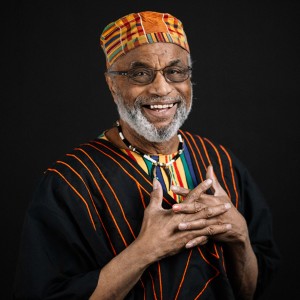
Friday Apr 22, 2022
Chatter Marks EP 037 A life of activism with Cal Williams
Friday Apr 22, 2022
Friday Apr 22, 2022
Cal Williams is an activist and community archivist. He sees his involvement in activism as more of a pull than a draw. He didn’t plan it, it just happened. Seven days after he was born, Pearl Harbor was bombed and most of the men in his life went to war. So, the influences he had at those early ages came from the women in his life. He saw how they did what they could to help the war effort.
He’s 80 now, and his list of achievements are extensive. They include the president of the NAACP of Alaska, the recipient of the St. Francis of Assisi Award and working with HistoryMakers, an organization that collects and preserves the well-known and unsung stories of African Americans. Considering his current work with HistoryMakers and the Anchorage Museum, Cal says that he chases the dead — he reads obituaries and attends funerals in order to collect the stories that would otherwise be lost forever.
Photo by Jovell Rennie
Chatter Marks is a podcast of the Anchorage Museum, and is available on Apple Podcasts, Spotify, Amazon Music and Google Podcasts. Just search "Chatter Marks."
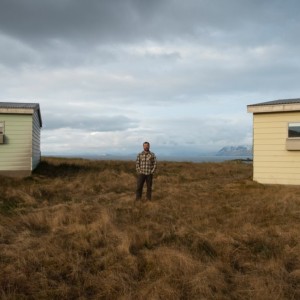
Monday Apr 11, 2022
Chatter Marks EP 036 Atomic Landscapes with Photographer Ben Huff
Monday Apr 11, 2022
Monday Apr 11, 2022
Ben Huff believes that photography is gloriously incomplete, that it has the potential to start a conversation, but it takes the viewer to finish it — to bring their own history and their own knowledge to the table and fill in the blanks. That’s one of the things that’s wonderful about photography, he says, it prompts a narrative. It introduces a concept or an idea for further examination.
Much of his work is interested in exploited landscapes, in the things that we’ve brought to places. His recent book, Atomic Island, details the U.S. military occupation of Adak Island during World War II and the aftermath of their departure that left so much abandoned infrastructure and debris.
Chatter Marks is a podcast of the Anchorage Museum, and is available on Apple Podcasts, Spotify, Amazon Music and Google Podcasts. Just search "Chatter Marks."
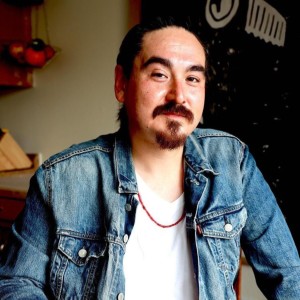
Saturday Mar 19, 2022
EP 0105 When a story gives itself to you with James Dommek, Jr.
Saturday Mar 19, 2022
Saturday Mar 19, 2022
In this one, Cody talks to musician and storyteller James Dommek, Jr. Growing up in Kotzebue, James played basketball. Most kids did — it was and still is a big part of the rural Alaska experience. In the summertime, they played all night because the sun was out. And in the wintertime — despite the cold and ball going flat — they would still play. In 1996, James moved to Anchorage, where he continued playing basketball for a while, but eventually moved on to playing music. He became as obsessive about music as he was basketball and, after high school, he joined a rock band called The Whipsaws. And that’s where he spent his 20s, playing drums all up and down the Alaska road system at almost every bar that had a stage. He says that he realized he was a storyteller from those days on the road. If something memorable happened, he would be asked to retell the story because people had a tendency to listen when he spoke.
In 2019, James and his producers released Midnight Son, a true crime podcast that explores the story of Teddy Kyle Smith, who went from being an actor to a fugitive in a quick succession of tragic events. What followed was a case that involved Alaska Native folklore and the United States justice system. In the podcast, James talks about how this story gave itself to him — how it showed its neck. So, for two years he and his producers worked on Midnight Son — collecting interviews, listening to courtroom audio, writing and just generally wrapping their minds around the case. James says that he was genuinely obsessed with Teddy’s story and that if he didn’t tell it, he would regret it for the rest of his life.
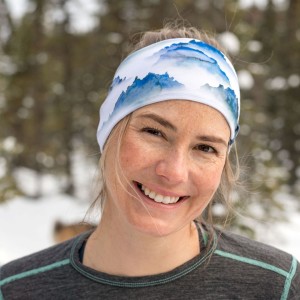
Monday Mar 14, 2022
Monday Mar 14, 2022
Jennifer Loofbourrow is the owner of Alpine Fit, an Alaska-based outdoor clothing company that specializes in offering a variety of fit options for different body types. Jennifer’s active, outdoor lifestyle influenced her decision to start the brand. From 2004 to 2009, she kayaked the outer islands of Alaska's southeast coastline. In that time, she gained an intimate understanding of what basic gear is needed on those trips and how it’s important to consider things like weather and the duration of the trip. She’s actually been told that she’s the bullseye of her target audience.
She says that she lives her life like it’s an endurance sport, so finding a balance between work and rest is important. That balance hasn’t always been easy to find, but she’s getting better at it.
Chatter Marks is a podcast of the Anchorage Museum, and is available on Apple Podcasts, Spotify, Amazon Music and Google Podcasts. Just search "Chatter Marks."
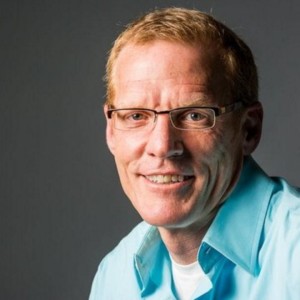
Friday Mar 04, 2022
EP 104 A career of reporting on Alaska hockey with Doyle Woody
Friday Mar 04, 2022
Friday Mar 04, 2022
In this episode, Cody talks to long-time Alaska sports journalist Doyle Woody. Doyle got his start at the Anchorage Daily News (ADN) in 1983 covering high school sports. From there, he moved on to covering college basketball for a short period of time before he began covering hockey. And that’s where he stayed for the rest of his journalism career.
For 34 years, Doyle reported on and built relationships within Alaska’s hockey community. He says that back in his early days at ADN, they were generous with travel expenses. So, he would travel with the University of Alaska Anchorage Seawolf hockey team out of state about eight times a year. Those trips were part of what Doyle calls “old-timey hockey,” a time when it was played rough rather than technical. He says that he appreciates how the game has changed in the last few decades, though. How it’s less about fighting and violence and more about speed and skill.
Doyle says that there’s a difference in playing the game of hockey and understanding it. To play hockey is to go through the motions, understanding it is more intuitive. It means having a low panic point and knowing how to buy time. These qualities are what distinguish good players from great players. As far as Alaska hockey players go, Scott Gomez and Dean Larson come to mind. Both were intuitive players who knew how to buy time and space in order to make plays.
PHOTO / Marc Lester
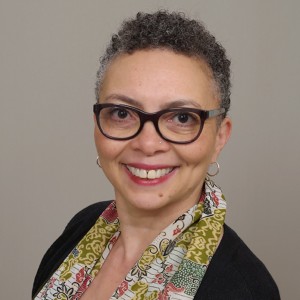
Tuesday Mar 01, 2022
Tuesday Mar 01, 2022
Julie Varee is the Community Outreach Archivist at the Anchorage Museum. So much of her life has been dedicated to helping others. She grew up in a household — back in Gary, Indiana — that put a lot of energy into philanthropy. In fact, her earliest memory is of tagging along with her mom and her grandmother to help the elderly people in her neighborhood. That sense of purpose and charity would define her professional life well into adulthood.
Julie got out of philanthropy and development at 60 years old and began pursuing another career with the Anchorage Museum. The first exhibition she worked on was "Black Lives in Alaska: Journey, Justice, Joy." It’s told through archival photos and collected materials, and showcases the richness and resilience of Black lives in Alaska. Julie says that exhibitions like this one can help people be more open to the stories of other people’s lives and experiences, that their way of experiencing the world is not the only way or the best way or even the right way.
Chatter Marks is a podcast of the Anchorage Museum, and is available on Apple Podcasts, Spotify, Amazon Music and Google Podcasts. Just search "Chatter Marks."





